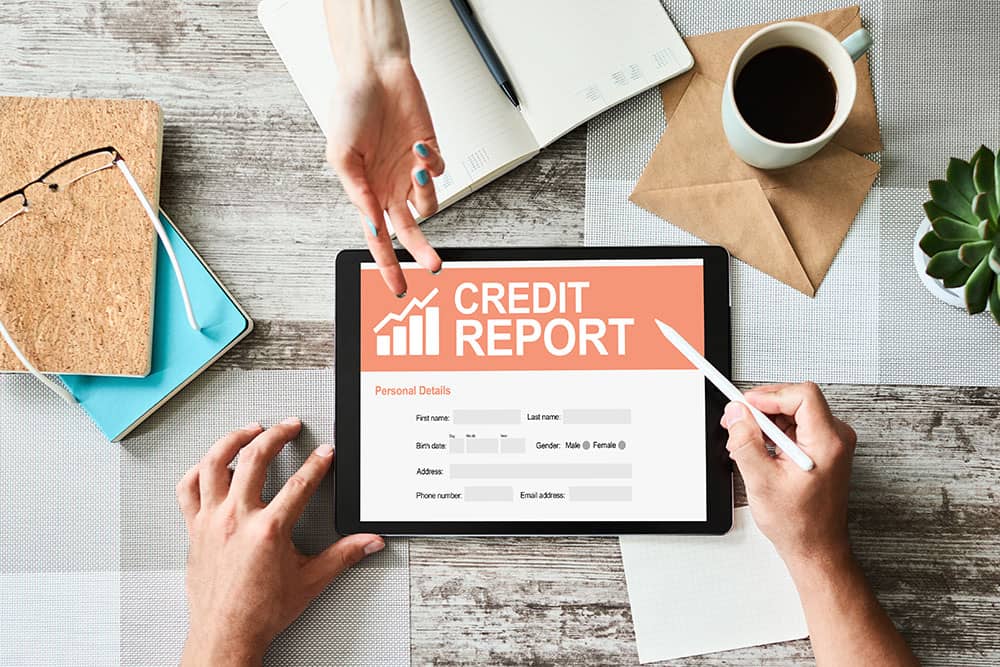When you borrow money from any lender, one of the factors that affect your application is your credit score. Therefore, it is crucial that you achieve a good credit score before applying for a loan.
The credit landscape is often confusing, making it difficult to know where to start. However, one of the first steps you can take is to understand the ins and outs of credit scores.
In this blog post, we will talk about what credit scores are, why they are essential, how you can check yours.
What Exactly are Credit Scores?
A credit score is made up of three to four digits, although credit bureaus can give zero for those without any credit history. It sums up the essential information found in your credit report. Lenders check your score and use it to gauge your credit health. Scoring agencies use an algorithm to calculate a consumer’s score based on the information provided by their credit report. This report includes data, such as loan payment history, balances, debts owed, and others.
Credit scores help lenders your repayment history and defaults. If your credit score is low, it tells the lender that there is a high likelihood that you will go delinquent on payments. It is why you should try to improve your credit or payment history.
One common misconception is that there is only one credit score. One person can actually have multiple credit scores, and these scores can be slightly different from one another. That’s because more than one credit bureau exists, and each of them has a different scoring methodology. Plus, your credit information is usually updated at various times.
There are hundreds of scoring models around, but the most popular ones are VantageScore and FICO Score. You do not need to understand how these scoring methods work. Instead, you should focus on the bigger picture: the key factors that affect your credit score. How are these factors weighted? Yes, scoring models do have variations, but it is crucial to attaining a general knowledge of how these credit score models work.
The reporting agency will determine how high your score is, and it can be anywhere from zero to 1,000 or 1,200. The credit reporting agencies are the ones responsible for collecting the consumer’s financial information. They will then collate that information into a credit report. A five-point scale is used to determine how good or bad a borrower is. In Australia, there are three major reporting agencies and credit scores range from Low to Excellent:
- Illion, which you may know as Dun and Bradstreet, has scores starting from 0-299 for Low, and 500-699 is considered Average. To ensure the lender approves your loan application, you should have a credit score of 700-799 (Very Good) or 800-1000 (Excellent).
- Equifax, Australia’s biggest credit bureau and formerly called Veda, rates creditworthiness from 0-509, which is considered Low, and 510-621 (Fair). You have a slight chance of getting approved if your credit score is anywhere between 622 and 725 (Average). However, your chance greatly increases if your score is around 726-832 (Very Good) and 833-1200 (Excellent).
- Experian rates consumers from 0-549 (Low), 550-624 (Fair), 625-699 (Average), and 700-799 (Very Good). To be rated Excellent, you should have a score of 800-1000.
Scoring 1,000 to 1,200 means that you are in the exclusive group consisting of only 3.5% Aussies. But don’t feel bad if your credit score is around 800-999. You’re still considered a part of the perfect credit scorers because it means you have built a strong credit history over time. You will surely receive attractive rates and terms.
A “Very Good” score will not hinder your loan approval. In fact, there should not be any problem with getting a loan. You only have to prove that you have the ability to pay it off. Of course, your rates will not be as great as someone with an Excellent rating, but you should still do well.
We recommend you improve your rating by limiting the number of applications you make. Having too many can bring your score down.

The Importance of Credit Scores
Your credit health tells the lender whether or not you are a responsible borrower. You may have noticed that a credit check is performed each time you apply for a bank loan or a personal loan from a private lender. It is also done when you apply for a credit card or a new mobile phone. Any transaction relating to finance usually involves the lender checking your credit score. For example, the lending institution may want to check your credit rating to calculate how much they should let you borrow and what your interest rates should be.
Having a good credit score can help you gain access to low-interest rates, which means lots of savings in the long run. Even if you have the means to pay for your loan, but your credit is in poor health, it could hinder your chances of getting the amount you need to buy a home or car. It could even prevent you from qualifying for a credit card with attractive rates and rewards.
Here are some ways that will allow you to improve your credit score:
- As mentioned above, if your credit rating is “Very Good,” you only have to limit your credit applications up to two or three.
- If your rating is “Average,” it still means you have a reasonably healthy score. Most of the time, scores ranging from 500-725 means that you have not experienced major credit mishaps, such as bankruptcies or defaults. You can improve your score by making sure you pay on time. Also, avoid sending too many credit applications at a time. It will not help increase your chances of getting approved, and it will hurt your credit rating, as well.
- Having a fair score, ranging from 300-624, is below average. But it also means that you did not have an extremely negative issue, such as bankruptcy. Often, it means you are in the younger age bracket, so you still require some time to build your credit. By paying your dues on time and avoiding defaults, you will surely have a better score in the future.
- A low score, ranging from 0-549, means that you have negative data, such as a bankruptcy. If not, it merely tells the lender that you do not pay your bills on time. You are considered a high-risk borrower, so you should look into improving your score before you send an application. The best way to improve your rating is to pay your bills diligently, which you can achieve by automating your payments. Also, avoid making different credit enquiries. Wait for your defaulted loans to be cleared before you send an application. Unfortunately, it can usually up to five years.
Your credit score is one of the first things that lenders look at is your credit score. They use it to determine your borrowing power. Therefore, you should spend time and effort to ensure your credit score is healthy, especially before you apply for a loan.
How to Check Your Credit Scores
Whenever you apply for a loan, a credit report will be made about you. You can get a copy of your credit report for free once a year through the following credit reporting agencies:
You will receive a copy 10 days after your request. If you need the report urgently or in less than 10 days, you will have to pay a fee for it. You will also have to pay if you request a copy more than once a year.



